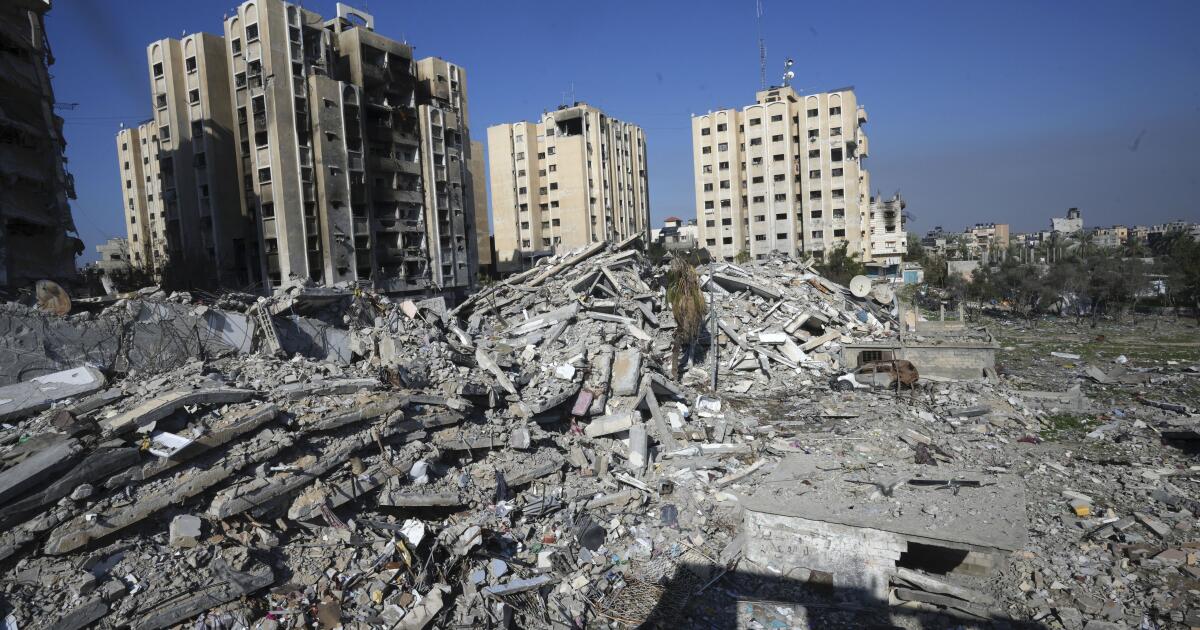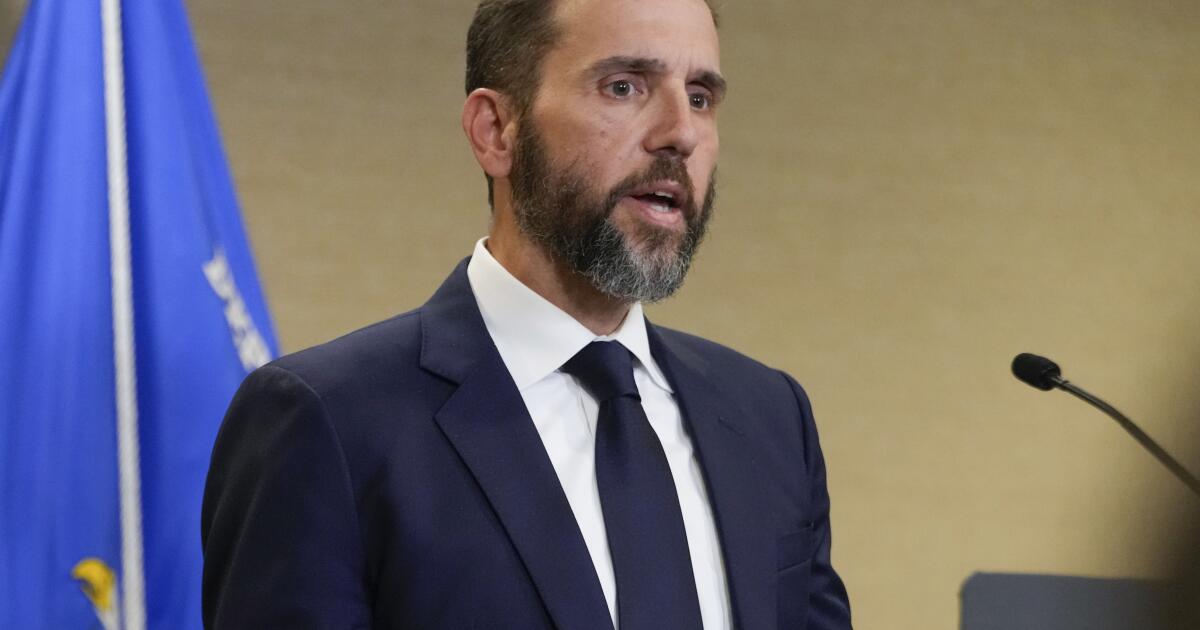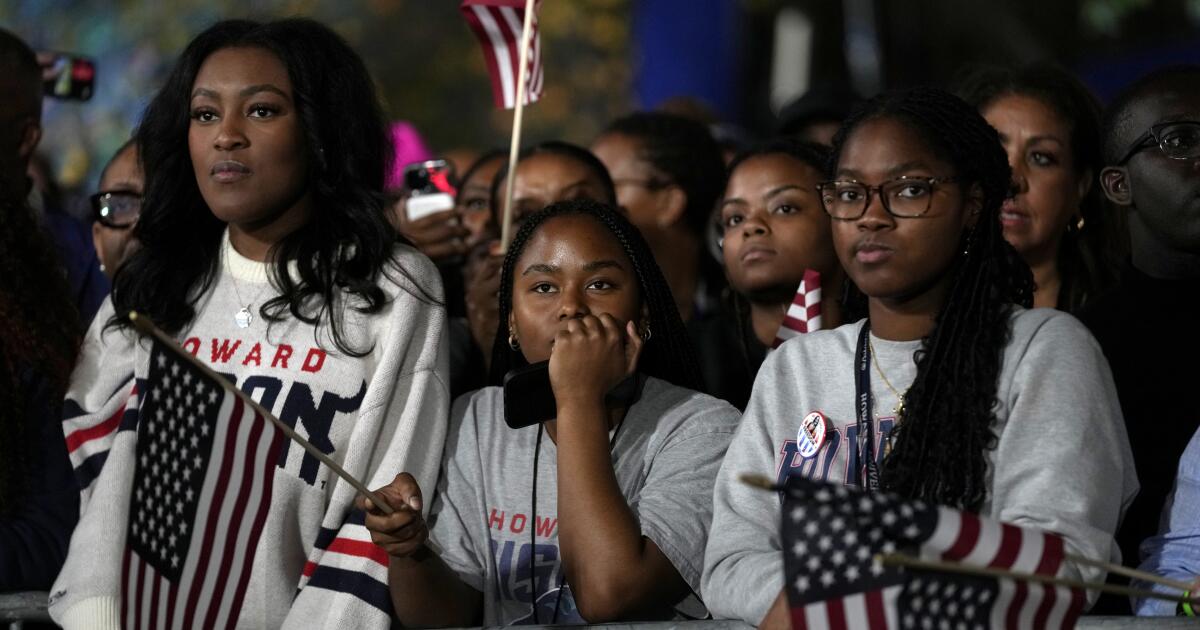It is somewhat appropriate that the prosecutor of the International Criminal Court is seeking arrest warrants against leaders of both Hamas and Israel in connection with the mass killings carried out since the October 7 Hamas attack and Israel's response.
ICC prosecutor Karim Khan is seeking arrest warrants for Hamas leaders Yahya Sinwar, Mohammed Deif and Ismail Haniyeh, and Israeli Prime Minister Benjamin Netanyahu and Defense Minister Yoav Gallant.
For the record:
9:45 am May 22, 2024An earlier version of this editorial said that more than 30,000 non-combatants have been killed in Gaza since October 7. The term “non-combatants” has been removed because the figures reported by Hamas and the United Nations do not distinguish between military and non-military deaths.
Unsurprisingly, all sides expressed outrage at being seen as equally complicit in an endless war that in its latest iteration has left more than 30,000 dead.
Linking Israeli and Palestinian leaders in this way is a tragic and completely depressing reminder that there were hopeful times again. In 1994, his predecessors – Israeli leaders Shimon Peres and Yitzhak Rabin and Palestinian leader Yasser Arafat – jointly received the Nobel Peace Prize for moving from declared eternal enmity and armed force to attempted reconciliation.
“We, who have fought against you, the Palestinians, say to you today, loud and clear, enough of blood and tears,” Rabin told Arafat at a White House ceremony in 1993. “Enough!”
The Oslo Accords intended to pave the way for the creation of a Palestinian state were never fully adopted. Arafat was discredited by Islamic activists for achieving peace and his successors lost control of Gaza to Hamas. Rabin was assassinated in 1995 by an Israeli who claimed to be acting on God's orders, and his successors encouraged continued Jewish settlement on Palestinian lands in the West Bank.
Before Oslo, there were the Camp David Accords, which resulted in the mutual recognition of Egypt and Israel, the return of the Israeli-occupied Sinai Peninsula to Egypt, and a commitment to resolve the Israeli-Palestinian conflict. The notion of “land for peace” became current. Israeli Prime Minister Menachem Begin and Egyptian President Anwar Sadat received the Nobel Peace Prize in 1978.
Sadat was assassinated in 1981.
Begin, Peres and Rabin, Arafat and Sadat were spokespersons for bitter enemies who tried to destroy the other, in the same way that Netanyahu and Gallant promise to destroy Hamas and Sinwar, Deif and Haniyeh promise to destroy Israel. They all managed to kill tens of thousands of people, including their own. After doing so, previous generations of warriors and terrorists became peacekeepers, but they are gone and the drive for destruction persists.
Enemies once connected by peace efforts are now enemies who could soon be linked in arrest warrants for war crimes and crimes against humanity. What is important is not legalistic arguments about who has the greatest moral or legal responsibility. The point is that they are linked. Neither side wins a Nobel Peace Prize or an arrest warrant without the other, and they likely never will.
No matter how committed each is to eliminating the other from the face of the Earth, neither has much chance of success. They will remain linked, forever, as neighbors at war or (if they ever decide they've had enough blood and tears this time) as neighbors at peace.












